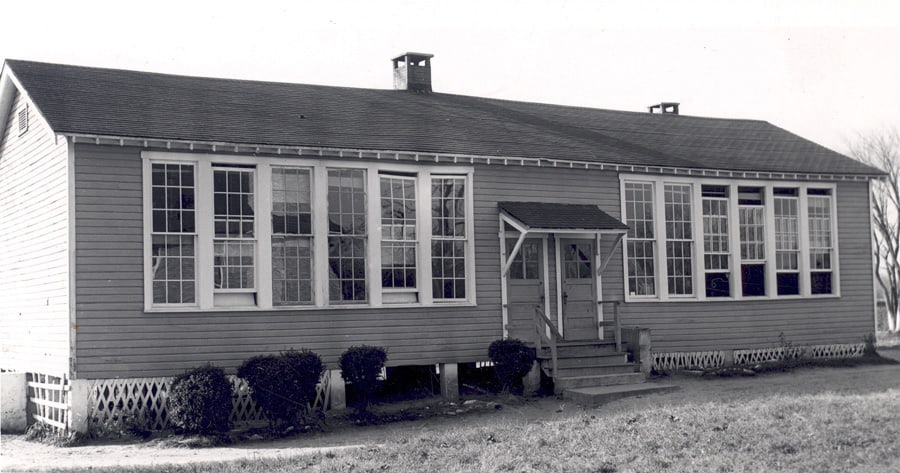Remembering the County’s Rural Black Schools

Galesville receives grant for Rosenwald documentary
By Krista Pfunder
During the early 20th century, around 23 small rural schoolhouses educated African American children in Anne Arundel County. Rosenwald schools, named for philanthropist Julius Rosenwald, were some of the first schools in Black communities and helped improve education across the South.
Rosenwald met African American educator and activist Booker T. Washington in 1912 and partnered with him to build thousands of schools for Black students in 15 states. They were considered state-of-the-art in their time, but the Supreme Court’s 1954 ruling declaring segretation unconstitutional made the Rosenwald schools obsolete, and most were closed. 11 of the 23 Rosenwald schools still stand in Anne Arundel County, including schools in Galesville and Lothian.
Now, Galesville historians are organizing a documentary project to share the story of the schools and their impact on the local community. The community center’s project, Persistence, Purpose and Preservation: Rosenwald Schools in Anne Arundel County, recently was awarded a $49,500 grant from Four Rivers Heritage Area to create it.
“Based on original oral histories and research, the documentary will share the history of a program that provided education to thousands of people in Maryland and across the American South,” says Lyndra Marshall (née Pratt), historian for the Galesville Community Center.
Four Rivers Heritage Area is a nonprofit organization which creates and supports products and activities that promote economic development through preservation and heritage tourism. The money from the grant will cover research, oral histories and a documentary film.
“The Galesville Community Center will capture impactful, first-hand accounts of Anne Arundel County’s 23 Rosenwald Schools,” Marshall, a genealogist and preservationist, says. “We will gather stories from past students, family members, activists, instructors and descendants of Rosenwald and Washington to develop an educational documentary that seeks to highlight the impact of Rosenwald Schools.”
Marshall has a personal tie to the legacy of Rosenwald schools. “My grandparents purchased the school in Lothian in 1957 and it is now our family homestead,” she says.
The Galesville Community Center—which hosts a variety of events, including oral history days, historical exhibits and community gatherings— is also a former Rosenwald school.
“It was built as an elementary school for African American children in 1929 as a one room school and expanded to a two-room school in 1931,” Marshall says. “The school closed in 1956 and pupils were bussed out of the village. In 1957, a group of black residents formed a community association to save the schoolhouse.
The school was purchased from the Board of Education at a cost of $1,000 in 1958 by twelve residents who formed the Galesville Community Center Organization, Inc.
Local help is needed to create the documentary. “We need the help of researchers, former students, local churches, heritage and cultural organizations, schools, colleges universities, repositories and persons interested in being interviewed,” Marshall says.
To share your Rosenwald school story, contact the Galesville Community Center at 410-703-0610 or [email protected].
